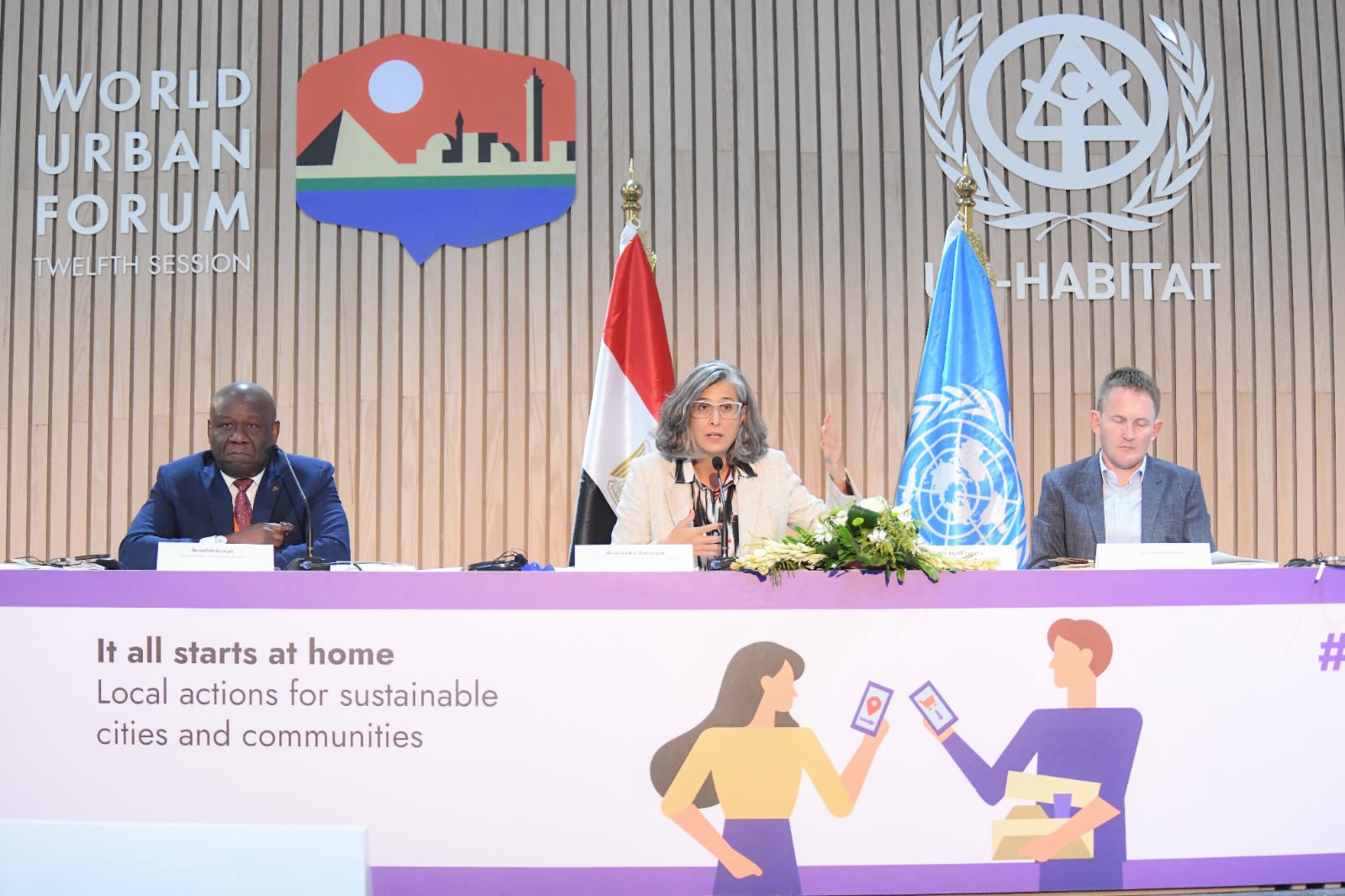A critical theme of the report is the significant funding gap for resilient urban infrastructure. Cities need an estimated USD 4.5 to 5.4 trillion annually to develop and maintain climate-resilient systems, yet current financing stands at just USD 831 billion – only a fraction of the required amount. This shortfall leaves cities, and especially their most vulnerable populations, increasingly exposed to risk.

The Executive Director of UN-Habitat (centre) addressing the press during the launch of the World Cities Report 2024 [UN-Habitat]
Despite these challenges, the report encourages a shift in perspective, urging stakeholders to recognize urban areas as not only part of the problem but also integral to the solution. “Knowledge is the cornerstone of effective climate action, and the insights we gather today are critical in shaping future frameworks like the forthcoming IPCC Special Report on Climate Change and Cities,” said Anacláudia Rossbach, United Nations Under-Secretary-General and Executive Director of UN-Habitat during a press conference on the launch of the report. “The recently published World Cities Report 2024 serves as a testament to the importance of integrating urban realities into climate discussions. As we prepare for COP29, we are committed to leveraging knowledge to inform strategies that resonate with both local and global efforts.”

The UN-Habitat Executive Director presents the World Cities Report 2024 during a press conference at the World Urban Forum 12 [UN-Habitat]
Finally, the report underscores the necessity for climate action to be participatory and community-led, urging the development of locally appropriate solutions that address the unique needs of residents, particularly in informal settlements and low-income neighbourhoods that have often been sidelined in decision-making processes.






 en
en



 Guangzhou,China
Guangzhou,China +86 - 19925740779
+86 - 19925740779 wedc@vip.126.com
wedc@vip.126.com










